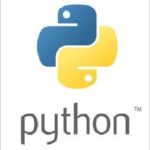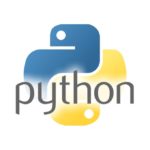One of the big surprises of the past few years has been the spectacular rise in the use of Python* in high-performance computing applications. With the latest releases of Intel® Distribution for Python, included in Intel® Parallel Studio XE 2019, the numerical and scientific computing capabilities of high-performance Python now extends to machine learning and data analytics.
Search Results for: Python code
Python Power: Intel SDK Accelerates Python Development and Execution
It was with one goal – accelerating Python execution performance – that lead to the creation of Intel Distribution for Python, a set of tools designed to provide Python application performance right out of the box, usually with no code changes required. This sponsored post from Intel highlights how Intel SDK can enhance Python development and execution, as Python continues to grow in popularity.
Argonne Looks to Singularity for HPC Code Portability
Over at Argonne, Nils Heinonen writes that Researchers are using the open source Singularity framework as a kind of Rosetta Stone for running supercomputing code almost anywhere. “Once a containerized workflow is defined, its image can be snapshotted, archived, and preserved for future use. The snapshot itself represents a boon for scientific provenance by detailing the exact conditions under which given data were generated: in theory, by providing the machine, the software stack, and the parameters, one’s work can be completely reproduced.”
Accelerated Python for Data Science
The Intel Distribution for Python takes advantage of the Intel® Advanced Vector Extensions (Intel® AVX) and multiple cores in the latest Intel architectures. By utilizing the highly optimized Intel MKL BLAS and LAPACK routines, key functions run up to 200 times faster on servers and 10 times faster on desktop systems. This means that existing Python applications will perform significantly better merely by switching to the Intel distribution.
Intel Performance Libraries Accelerate Python Performance for HPC and Data Science
Python is now the most popular programming language, according to IEEE Spectrum’s fifth annual interactive ranking of programming languages, ahead of C++ and C. Recent Intel Distributions for Python show that real HPC performance can be achieved with compilers and library packages optimized for the latest Intel architectures. Moreover, the library packages targeted for big data analysis and numerical computation included in this distribution now support scaling for multi-core and many-core processors as well as distributed cluster and cloud infrastructures.
Machine Learning with Python: Distributed Training and Data Resources on Blue Waters
Aaron Saxton from NCSA gave this talk at the Blue Waters Symposium. “Blue Waters currently supports TensorFlow 1.3, PyTorch 0.3.0 and we hope to support CNTK and Horovod in the near future. This tutorial will go over the minimum ingredients needed to do distributed training on Blue Waters with these packages. What’s more, we also maintain an ImageNet data set to help researchers get started training CNN models. I will review the process by which a user can get access to this data set.”
Python Can Do It
“Python remains a single threaded environment with the global interpreter lock as the main bottleneck. Threads must wait for other threads to complete before starting to do their assigned work. The result of this model is that production code is produced that is too slow to be useful for large simulations.”
Performance Insights Using the Intel Advisor Python API
Tuning a complex application for today’s heterogeneous platforms requires an understanding of the application itself as well as familiarity with tools that are available for assisting with analyzing where in the code itself to look for bottlenecks. The process for optimizing the performance of an application, in general, requires the following steps that are most likely applicable for a wide range of applications.
Intel Parallel Studio 2018: Modernize Your Code
“Intel Parallel Studio 2018 has been designed to recognize the latest CPU architectures including the Intel Xeon Scalable processor family and the Intel Xeon Phi processors in order to get maximum performance from their differing architectures, yet remain binary compatible. With the recent introduction of the Intel AVX-512 vectorization instructions, application developers can more easily take advantage of these new instructions when developing and compiling with the Intel Parallel Studio 2018.”
Intel Releases Optimized Python for HPC
“By implementing popular Python packages such as NumPy, SciPy, scikit-learn, to call the Intel Math Kernel Library (Intel MKL) and the Intel Data Analytics Acceleration Library (Intel DAAL), Python applications are automatically optimized to take advantage of the latest architectures. These libraries have also been optimized for multithreading through calls to the Intel Threading Building Blocks (Intel TBB) library. This means that existing Python applications will perform significantly better merely by switching to the Intel distribution.”











